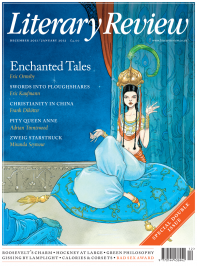Odd Arne Westad
Cold Hands, Warm Heart
Roosevelt’s Lost Alliances: How Personal Politics Helped Start the Cold War
By Frank Costigliola
Princeton University Press 533pp £24.95
What role does emotion play in modern diplomacy? Would the US reaction to 9/11 have been different if George W Bush had not needed to act as a Texas cowboy in order to hide his privileged East Coast upbringing? Would the Serbs have got a better deal in the post-Yugoslavia settlement if Slobodan Miloševic had had less of the dark about him? And would the Cold War have ended peacefully if not for Ronald Reagan’s immense personal charm and ability to fuddle the issues?
All historians worth their salt have accepted the role that emotion and personal politics play in international as well as domestic affairs. Sitting around the table negotiating with other world leaders is, after all, not so very different from being at a company board meeting or (God forbid) discussing an

Sign Up to our newsletter
Receive free articles, highlights from the archive, news, details of prizes, and much more.@Lit_Review
Follow Literary Review on Twitter
Twitter Feed
Under its longest-serving editor, Graydon Carter, Vanity Fair was that rare thing – a New York society magazine that published serious journalism.
@PeterPeteryork looks at what Carter got right.
Peter York - Deluxe Editions
Peter York: Deluxe Editions - When the Going Was Good: An Editor’s Adventures During the Last Golden Age of Magazines by Graydon Carter
literaryreview.co.uk
Henry James returned to America in 1904 with three objectives: to see his brother William, to deliver a series of lectures on Balzac, and to gather material for a pair of books about modern America.
Peter Rose follows James out west.
Peter Rose - The Restless Analyst
Peter Rose: The Restless Analyst - Henry James Comes Home: Rediscovering America in the Gilded Age by Peter Brooks...
literaryreview.co.uk
Vladimir Putin served his apprenticeship in the KGB toward the end of the Cold War, a period during which Western societies were infiltrated by so-called 'illegals'.
Piers Brendon examines how the culture of Soviet spycraft shaped his thinking.
Piers Brendon - Tinker, Tailor, Sleeper, Troll
Piers Brendon: Tinker, Tailor, Sleeper, Troll - The Illegals: Russia’s Most Audacious Spies and the Plot to Infiltrate the West by Shaun Walker
literaryreview.co.uk